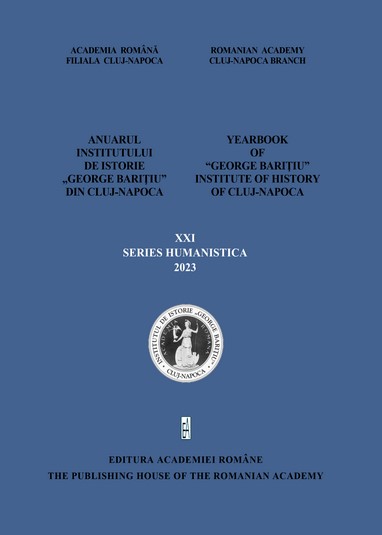INEXISTENȚA VORBITOARE
A SPEAKING INEXISTENCE
Author(s): Daniel SasSubject(s): Philosophy of Mind, Ontology
Published by: Editura Academiei Române
Keywords: Subjective Division; Symbolic Inexistence; Intentionality; Apophatic Anthropology; Singularity; Ontological Difference; Unconscious Vs. Objective Causality; Possibility Vs. Necessity;
Summary/Abstract: Lacan (2014) defines the human being as a speaking animal. But we don’t know the identity of the speaking subject, insofar as it is speaking. To generalise, we don’t know the identity of the subject of perception, affectivity or of the intentional relation. We thus find ourselves confronted with the necessity of a (radical) difference between this (volatile) subject and the observable consequences of his acts. The subject wouldn’t be able to articulate, to function as the cause of a discourse, unless 1. it was previously divided with respect to the signifier and 2. in virtue of its momentary act-related absence at the level of its (symbolic-imaginary) performances. The intentionality of the subject (definable as a symbolic arc) is distinct to any objectifying intention. The subject doesn’t exist, as the Other doesn’t exist, being thus able to generate important effects. Being a singularity, subjectivity is rather approachable from an apophatic theology / anthropology. As a version of the ontological difference, the distinction between the subject (psychic cause) and the objective relation is simultaneously capable of providing a device for interpretation. The thesis I wish to defend within this article is this: unconscious causality overdetermines objective causality. In The Interpretation of Dreams, Freud (2003) manages to prove that the result of the dreamwork isn’t a random-imaginary emanation of some organic processes, but a composition with a symbolic force and operations such as selection and condensation are markers of an invisible hand. In On Interpretation, Aristotle (1957 & 2016) shows that there is a remarcable (logical) interdependence between possibility and necessity. You can’t treat one without treating the other. The logical treatment (performed by a subject necessarily placed outside discourse) overdetermines the correlation in question. I will try, as a final step, to evidence, based on a set of statements performed by Anton Zeilinger (2006, 2007, 2013, 2014, 2015 și 2016), some important implications of the (contemporary) quantum theory: (a) Indetermination isn’t a state of the Real, but its answer to a disjunctive questioning aiming to obtain a determinate (univocal) answer; (b) this indetermination is simultaneously the condition of possibility of the capacity of the symbolic relation to alter a reality which seemed to be mechanically governed by an (implacable) objective causality.
Journal: Anuarul Institutului de Istorie »George Baritiu« din Cluj-Napoca - Seria HUMANISTICA
- Issue Year: XXI/2023
- Issue No: 1
- Page Range: 121-162
- Page Count: 42
- Language: Romanian

